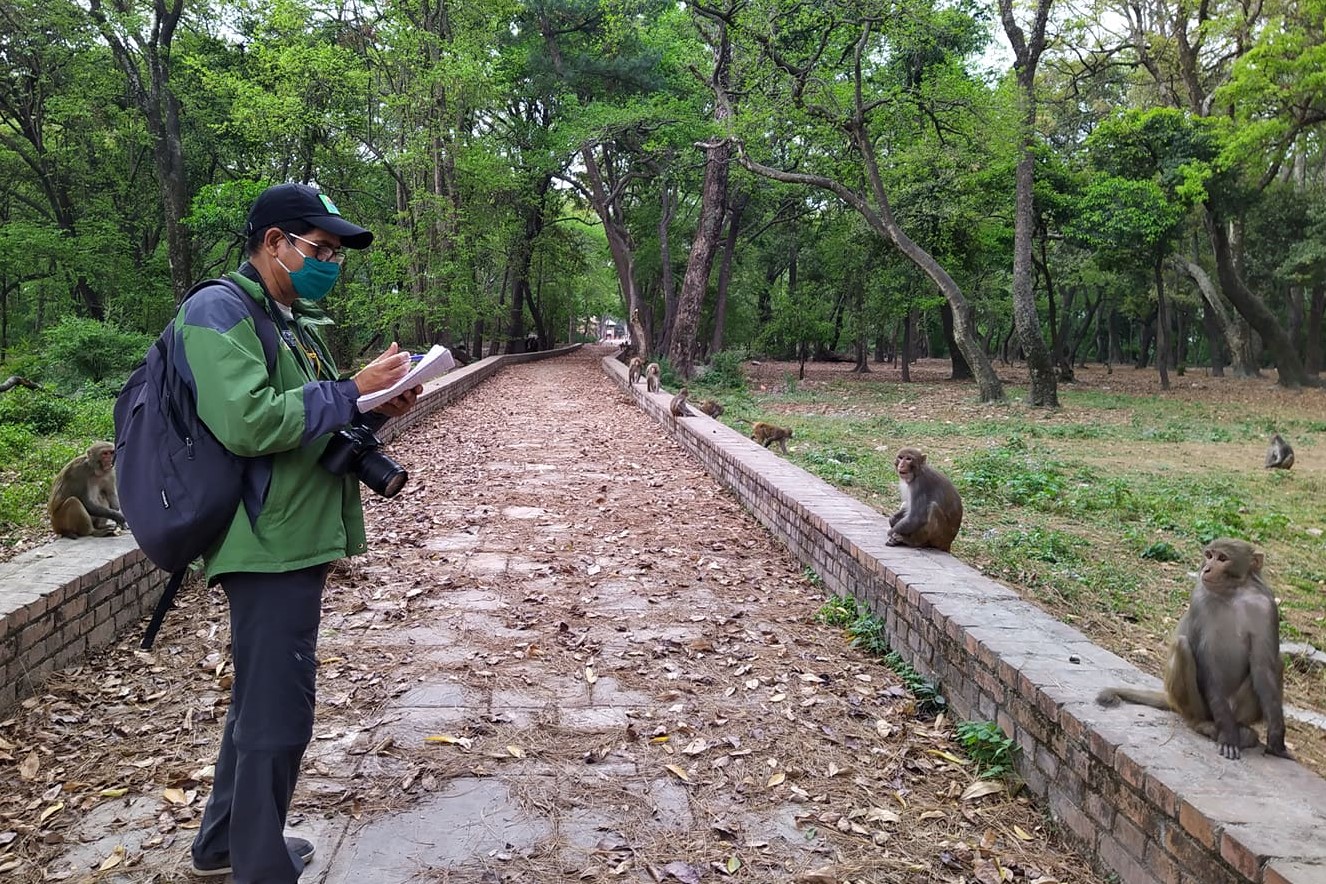Nepal is one of the countries currently in lockdown to prevent the further spread of coronavirus disease 2019, commonly known as COVID-19. During this time, it is especially critical for LVDI International to engage in meaningful action to fulfill our mission. Relentlessly focused, our team is committed to bringing about change in individuals, society and the global community to safeguard our environments. We ask everyone to be agents of this change as the continued encroachment of natural places and exploitation of wildlife by humans have brought about conditions for novel diseases like COVID-19 to appear.
Despair not, we share a story of hope.
Several centuries ago the Kathmandu Valley was covered by dense monsoon forests that were dominated by large oak, elm, beech and maple trees. Besides humans, the rhesus macaque (Macaca mulatta) and other wildlife species resided in this lush landscape. But, over time urban development destroyed most of the forests, and today, aerial views of the Valley show only a few dark green forest remnants, most of which are revered ancient spiritual sites.
Before the coronavirus lockdown thousands of local residents and tourists visited these sites on a daily basis, and many of them would dole out unhealthy snacks and drinks to the rhesus macaques. Attracted to sugar and salt, these monkeys would spend most, if not all, of their time near humans, waiting for handouts or finding scraps in the garbage left behind. The monkeys would even steal food from people, sometimes leading to disastrous encounters. People blamed the monkeys for causing all the problems.
Or so it seemed.
Now, during the lockdown Bishwanath Rijal (Nepal Program Coordinator) has discovered that monkeys living near the forests have returned to eating a natural diet and are not depending on human food. They appear calm and non-aggressive.
In an online news article, Rijal encouraged his fellow Nepalis to see this extraordinary time as an opportunity to find a new way forward and give these free-ranging monkeys a chance to live a healthy and independent life, which in turn will enable our own species to thrive in the same environment.
And one day we shall remember…it was the best of times, it was the worst of times, it was the age of COVID-19, it was the period when the humans were home, and the monkeys roamed peacefully and regained their independence.
